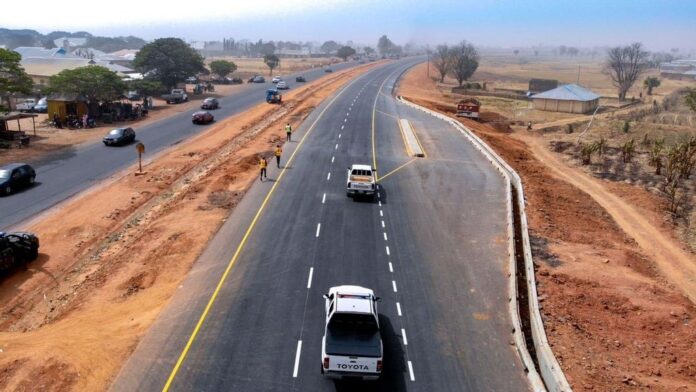The Federal Government has revoked part of Julius Berger’s contract for the construction of the Abuja-Kaduna highway, citing delays and inflated project costs.
This decision comes after years of slow progress and rising tensions between the government and the construction company.
The contract, originally awarded in 2018 during the administration of former President Muhammadu Buhari, had faced significant delays, especially on the Abuja-Kaduna section.
While the Kaduna-Zaria stretch is completed and the Zaria-Kano section is nearing completion, the Abuja-Kaduna portion has seen only 27% progress after six years.
Minister Accuses Julius Berger of “Playing Politics”
At the inauguration of the rehabilitation works on the highway on Thursday, Nigeria’s Minister of Works, Senator David Umahi, expressed frustration with Julius Berger’s handling of the project.
Umahi accused the construction giant of “playing politics” with the project, dragging negotiations, and continuously raising the cost estimates, which led to the decision to revoke part of the contract.
The minister explained that Julius Berger initially requested N1.5 trillion to complete the project. However, after negotiations, the Federal Executive Council (FEC) approved a revised budget of N740 billion for the highway’s construction.
“Julius Berger said it would need N1.5 trillion to finish the entire job. We started negotiations last September, and they kept delaying, sending letters every week,” Umahi explained.
Umahi revealed that despite reducing the cost to N740 billion, the company came back with new demands for more funds.
“Just last week, they said they needed another increase to N903 billion. This back-and-forth cannot continue.”
The minister emphasized that the government cannot afford the continuous price hikes, especially as it would set a precedent for other contractors to demand similar increases, driving costs higher.
“If we accept this, other contractors will want the same, and the project cost would rise to about N4 billion per kilometer. Our position is that we are not increasing this project beyond N740 billion,” Umahi declared.
“Enough Is Enough” – FG Will Seek New Contractors
In his speech, the minister confirmed that the government is prepared to hand over the unfinished portions of the road project to other contractors who can deliver within budget and on time.
“If Julius Berger is not doing it, we will give it to those that will complete the project at a cheaper rate, with the same quality of road. They have politicized this project, and we say enough is enough,” Umahi stated firmly.
The government’s frustration with the delays goes beyond mere construction timelines.
The Abuja-Kaduna highway is one of the most crucial road networks in Nigeria, linking the capital city, Abuja, to the north. However, over the years, the road has been plagued by traffic jams, deteriorating conditions, and heightened insecurity, including kidnapping incidents.
The slow pace of work has exacerbated these issues, leaving travellers vulnerable on the unfinished stretches of the highway.
As part of the government’s solution to the prolonged delays, the remaining portions of the Abuja-Kaduna project have been re-awarded to other companies.
According to Engr. Bakare, Director of Highway Construction at the Ministry of Works, the unfinished sections of the highway will now be completed by Dangote Group and BUA.
Bakare explained that Dangote has been awarded a 38-kilometer dualized section of the road, which falls within the first phase of the project.
This section will cost N145 billion and has a completion deadline of 14 months.
Similarly, other parts of the project will be handled by BUA, ensuring that work continues without further delays.
The new contracts were awarded under the Federal Government’s Tax Credit Scheme, which allows private companies to invest in public infrastructure projects and recover their costs through tax incentives.
Before the contract revocation, the Abuja-Kaduna highway project was funded through the Presidential Infrastructure Development Fund (PIDF).
However, with the latest developments, the project will now be funded under the Tax Credit Scheme.
This shift marks a significant change in how the government approaches large infrastructure projects, especially in cases where there have been delays or cost overruns.
Under the Tax Credit Scheme, companies like Dangote and BUA will finance the road construction and receive tax credits as compensation.

